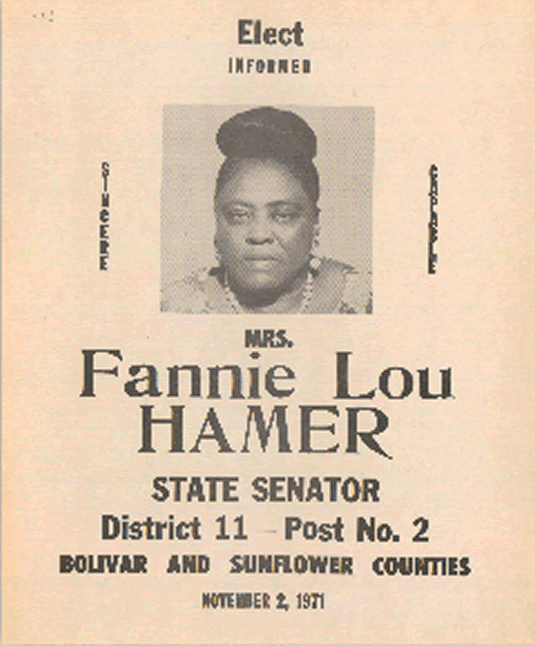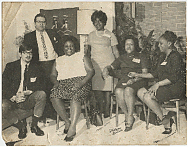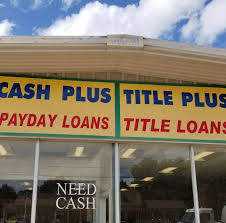Talking Capitalism in the Delta: Indianola, MS
- Sarah Stookey
- Dec 26, 2018
- 8 min read

The Mississippi Delta has a critical role in the development of U.S. (and global) capitalism. Like many people - even ones who have spent a lot of time in school - I have a weak understanding of how race is woven into every aspect of our history and economy (I found The Half Has Never Been Told: Slavery and the Making of American Capitalism, by Edward E. Baptist, very helpful). When I was planning the road trip I knew I wanted to work with students in this region.

Based on their size and location I targeted the towns of Indianola and Ruleville. Gentry High School is the public high school in Indianola. I had sent materials to the Principal, Mr. Willy Bolden and when I arrived in town we met and had a good discussion about Talking Capitalism, the high school and its students. Mr. Bolden arranged for me to work with six groups of senior students in Ms. Carmen Wyms' U.S. Government & Economics class.

Indianola's history is shaped by cotton and by slavery. Throughout Mississippi and the South, the labor of enslaved people made extraordinary returns (and periodic overproduction and busts) possible. Beyond the region, "The returns from cotton monopoly powered the modernization of the rest of the American economy, and by the time of the Civil War, the United States had become the second nation to undergo large-scale industrialization"(excerpt, The Half Has Never Been Told, E. Baptiste). Cotton is still central to Mississippi's economy: in 2017 it was the 4th most valuable crop in the State. Indianola currently has at least 11 cotton producers, including Pitts Farms.
Capitalism here is deeply rooted in the slavery-based economy. The culture of exploitation and segregation has been braided into most aspects of local life ever since. Money, MS, where Emmett Till was murdered in 1955, is a 45 minute drive away. As a restaurant owner (Betty's Place, good pulled pork) told me, the first chapter of the Citizens' Councils, the white supremacist association, was formed in an Indianola church in 1954.
First CItizens' Council meeting, Indianola, MS, 1954 (Scoopnest)
The Citizens' Councils were motivated by federal school desegregation mandates and directly responsible for the creation - throughout the South - of "segregation academies", private schools established to provide a whites-only alternative to the public schools. In Indianola, Indianola Academy was founded in 1965, eventually covering K-12.. In a 2012 Atlantic Magazine article about these academies, In Southern Towns, 'Segregation Academies" Are Still Going Strong, Sarah Carr describes "Indianola's tale of two school systems -- one public and black, one private and white" (see also, Revolvy.com)
Images of Indianola Academy: Facebook, Clarion-Ledger, school website
Indianola and surrounding towns were also the site of powerful resistance to segregation and racial exploitation. Fannie Mae Hamer and other local residents were activists in the Freedom Democratic Party (FDP) and the Freedom Labor Union (FLU - interesting audio recording of 1965 FLU meeting in Indianola via Stanford Oral History Project). Based in nearby Ruleville, Hamer led voter registration efforts at a time (1965) when "...only 155 black people — 1.1 percent of those eligible to vote — were registered, while more than 7,000 whites were registered, or 80 percent of those eligible to vote" (Mississippi Historical Society).
The current population of Sunflower County (Indianola) is 27,000 (75% black, 24% white) The poverty rate is 34.6% (vs. 20.8% for Mississippi and 14% for the U.S.) (Data USA). Good-paying jobs are rare; the Sunflower County Economic Development website touts "The region’s competitively priced manufacturing labor...Average hourly earnings have continued to hold steady at roughly 75% of the national average" as well as the fact that "As one of seven states with the right-to-work law in the constitution, Mississippi historically has good working relationships between management and labor. Lost work time due to strikes in the state is lower than the average for the Southeast, and less than half that of the United States. Mississippi has less than 6% union membership. This compares to a national average of nearly 15%".
A huge Dollar General regional distribution center is located on the outskirts of town.

The company website describes openings for warehouse workers in Indianola, frankly listing very arduous physical demands:
Continuous lifting of merchandise up to 65 pounds on a regular basis, and occasional team lifting of merchandise up to 85 lbs
Continuous walking, including long distances and up and down stairs
May work at heights up to 30 feet above ground
Standing, bending, stooping, squatting, kneeling, reaching, and pushing and pulling using hands and/or arms on a repetitive basis above and below the shoulder level
May work continuously up to 12 hours
Exposure to extreme heat and cold conditions as well as dust and noise
A recent poster to Indeed.com said about the work, "I wouldn't recommend working here unless you can handle the physical work, and have no plans for anything outside of work and maybe sleep" and on Facebook drivers vent about the company: "Arrive before your appt. They say " We are busy" THEN RAPE you to unload their stuff off your trlr. This is the kind of crap that makes people get all bent out of shape. If the politicians really want to do something to alleviate the stress in drivers lives then places like this need to be addressed."
Highway 82 runs through the center of Indianola. There is a small, older business district downtown but most business is located on the highway, including Walmart, fast-food restaurants, a few motels. No movie theater. A lot of payday and car title lenders (10 within less than a mile), usurious furniture rental businesses (Rent-A-Center, Aaron's, etc.) and pawn shops. Mississippi Delta Community College.
High levels of poverty and associated problems make Indianola eligible for a variety of national and state-level programs. Promise Neighborhoods, a U.S. program focused on addressing childhood opportunity gaps, has had some success: "Fifty-two percent of kindergartners were ready on day one in 2015 compared with just 25 percent in 2013"(Urban Institute report).
Gentry High School is the only public high school in Indianola but also, due to de facto segregation, the black high school. Enrollment is approximately 500 but during the two days I visited I saw only one white student (and a few white teachers).
The six groups of senior students I worked with were focusing on U.S. government in the first part of a year long course. The second part would focus on economics. It was Halloween; many students wore costumes and the school was buzzing with preparations for an after-school "haunted hallway".
Ms. Wyms effectively encourages student attention and engagement by collecting and grading students' class notes. As compared to most other schools I visited, her students seemed to be quite focused on writing notes about what we talked about. I didn't see these notes but did collect student responses to my own handout. Filling out my handout takes time (ideally at least 15-20 minutes). At Gentry we seemed to be having productive conversations and only had 55 minutes in each period so I didn't prioritize leaving time for them to work on the handouts. In some classes students filled out all the questions, in others we used the time to talk and I didn't even collect them. The responses I report here are therefore neither comprehensive nor scientific.
As at other schools, I wanted to start by getting a sense of what the word "capitalism" means to them. In my introduction (prior to asking them to write down a meaning) I had explained that economics is about how we make and distribute what we need and that we would be talking about one kind of economic system, capitalism. As a result many students wrote something about "an economic system" in response to "What does 'capitalism' mean to you?". Another subset of responses referred money and business as in:
"me being able to make money and keep it".
"Capitalism to me means money. The amount earned, spent and given away".
"Money".
"business/money".
"business".
Others conveyed a value judgement:
"When the economy is at the highest peak",
"A form of gaining and leading",
"follow the rules",
"to take control of something",
"me being able to make money and keep it".
"The reason college is more expensive for me than it was my mother's senior year".
A few people referred to the government in their response:
"something being (done to) you unfair(ly) by the government".
"It is when the government does wrong and unfair things".
"I think it has something to do with the government of the United States".

In the conversation with the students we worked our way through the capitalism diagram, including discussion of how capital is not the money you spend on snack foods, the different forms of ownership of capital, especially small businesses/sole proprietorships/family businesses vs. public companies. In the picture of the whiteboard, above, the grid represents shares of stock, "Jeff Bezos" and "1/100,000" is my effort to illustrate how shares can be owned in tiny fractions or in large clumps. When I say, "so, that's what happens on Wall Street", students sometimes have heard the term but many haven't. It's possible that more students have heard of Bitcoin than are familiar with that symbol of financial markets.
Both in the classroom conversation and on the handouts I collected, students were generally able to connect the concepts we discussed to their lives in terms of jobs, paychecks, taxes (as deductions from paychecks) and the cost of purchases. In response to the question "How do you see or live capitalism in YOUR (and/or your family's or community's) life?" one group of students wrote (after the discussion):
"I see myself going to work every day. Getting paid".
"My mom going to work and making her own money and taking pride in what you do".
"My family helps me out and I help them out".
"Yes, because on weekend I make profit".
"I buy fast food every Friday. My grandma owns a restaurant (family business)".
Honestly I contribute to capitalism in a number of ways, but 2 ways stand out to me: buying cell phone screens from Amazon; I use the screens to make a profit so my money is capital".
"Part of the education being paid for by taxes. Roads. Pay checks".

In response to the questions, "What do YOU think doesn't work well?" and "What would you change and why?" students were fairly evenly divided between those who didn't see any problems and wrote some version of "I wouldn't change anything, I think it works well" and those who linked changes to problems including public investment, taxes, political representation and economic opportunity:
Problem: "Taxes because the money that is given to public schools may be going somewhere else because there are a lot of public schools in poor condition". Change: "I would make sure the government puts more money into schools".
Problem: "Not making any profit". Change: "The way profits are set up because it's hard for some people to make money".
Problem: "When people try to profit off of small business". Change: "I'm not really sure if there's any way to change".
Problem: "Government". Change: "I would change the government because as an African-American our government and President are trying their best to take EBT (NB: electronic benefit transfers) from people that don't have that much".
"I would change the money that's being taken out of people's checks".
Problem: "Government". Change: "The way government and capitalism works together".
I was very impressed by Gentry High School. The students were respectful and thoughtful - even with excitement about Halloween. The faculty and staff are professional and focused on student achievement and success but also have created a warm sense of community. I hope to continue working with them in the future!

Thank you, Ms. Wyms and Mr. Bolden, for the opportunity to work with your students!


















































Comments